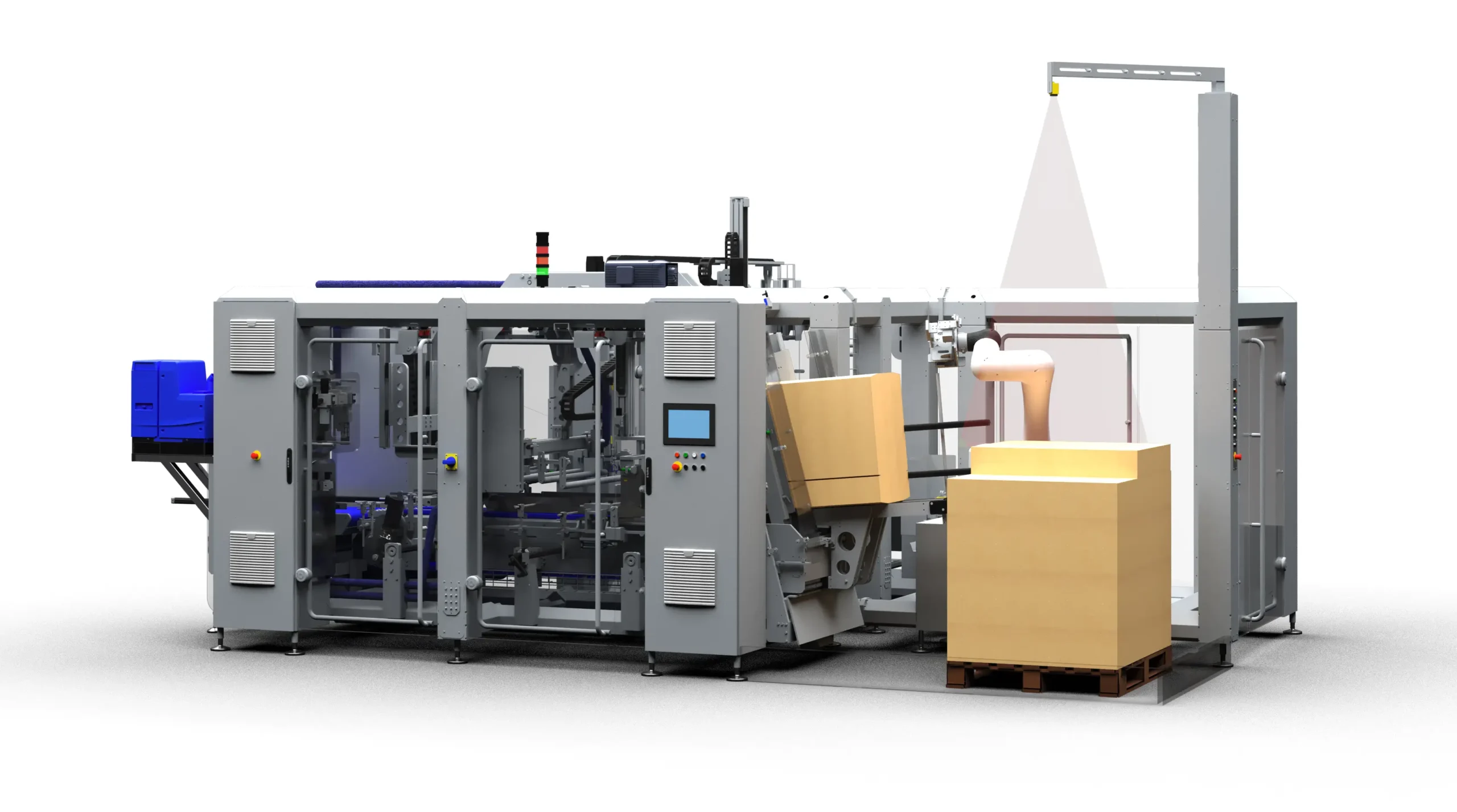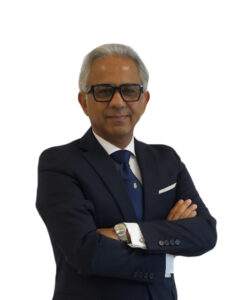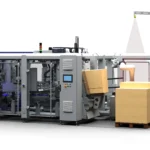Ahmed Mohamed, Vice President of Sales MENA region at Cama Group, explains how local knowledge, class-leading technology and exceptional regional support combine to deliver best-in-class packaging technologies to a growing and highly demanding region.
In this interview, Ahmed Mohamed explains how simply offering a product or a service is not enough. You have to understand the region, sympathize with the needs of the customers, and appreciate that doing business is about winning trust and familiarity — the foundation of future success.
Q. Are there particular regional market or industry challenges?
A. Of course, the MENA region presents both exciting opportunities and unique challenges, one of which is the need for adaptable packaging solutions that can meet rapidly evolving consumer preferences. There’s also a growing demand for more sustainable solutions, localized branding, and portion-controlled packaging, especially in the food and beverage sector.
Q. What about the climate?
A. The region’s climatic conditions and logistical complexities require robust, high-performance machines that can maintain throughput and reliability in sometimes harsh environments — often hot and humid.
To counter these, we have developed specialized design methodologies, which incorporate high-performance air conditioning systems within the machines and in the carton blank magazines. It is such an important design element that it is demonstrated very clearly in the factory acceptance testing (FAT). The documentation and maintenance instructions are tailored to this aspect, too.
Q. Cama has seen significant successes in the region — what is driving local investment and expansion?
A. Many countries are pushing for inward investment, including Saudi Arabia and Dubai, where there is emphasis on automatic machines for packaging and other traditionally manual processes. Indeed, many local companies are buying automated machinery to reduce their reliance on human resources.
With a healthy installed base across the region — especially in Saudi Arabia, where we have multiple solutions in the country’s three biggest cities — prospective customers can see our technology in action and get a clear idea of what these automated solutions can deliver.
Q. What do MENA customers want from their machines?
A. Like our global client base, customers in the MENA region are looking for efficiency, flexibility, and future-proof technology. They want machines that can handle multiple SKUs, accommodate faster changeovers, and integrate seamlessly into existing production lines.
Reliability is critical, too, as downtime directly impacts supply chain performance. There’s also a growing interest in compact designs that maximize floor space without compromising performance.
Q. What about the uptake of Industry 4.0 technologies with augmented and virtual reality (AR & VR)?
A. The Middle East is still at the beginning of the Industry 4.0 journey, but I am seeing take-up gathering acceleration, as use cases from other regions appear online and in the technical press, and larger multinational companies establish new regional facilities that mimic the factories and technologies they have in other regions.
Q. What do MENA customers want from their machine suppliers?
A. Beyond the machines, MENA customers expect strong partnerships. They value suppliers who offer local presence, responsive support, and training capabilities. Being available post-installation and providing proactive service and maintenance is essential, too.
Customers also seek suppliers who understand regional market dynamics and can provide customized, scalable solutions tailored to their specific needs — whether they are SMEs or large multinationals.
Q. Culture must play a huge part here too
A. Absolutely. It is important to create a sense of trust and familiarity very early in any negotiations. You must open yourself up to scrutiny and showcase who you are before those who you represent.
“I have often attended meetings where the first two thirds will involve me answering questions about myself and my family, with the actual business negotiations happening right at the end. It’s the way business is done here, and I believe it fosters much closer and stronger relationships.”
Q. Looking at events like Gulfood and Saudi Food — what technologies from Cama Group will be of particular interest?
A. This year our focus is very much on our advanced robotic packaging lines, known for their high speed, flexibility, and precision. We’ll showcase how Cama’s machines support Industry 4.0 integration, offering intelligent diagnostics, real-time performance monitoring, and remote assistance.
We have recently augmented our robotic offering with the introduction of our Automatic Carton Loading (ACL) technology. This comprises a collaborative three-axis robot that automatically loads the carton blank magazines on our packaging machines.
Offering even greater strength, reach, and agility, it takes over what is traditionally a difficult, repetitive, and onerous manual process. The technology integrates seamlessly with our machines and can be adapted to fit within available factory real estate. For modern integrated packaging operations, it can communicate with upstream and downstream machines, preparing to receive pallets transported by AMR (mobile robot).
Modularity and scalability are also key. Our systems are designed to evolve with our customers’ production needs, addressing not just the packaging of today — but anticipating the demands of tomorrow.

Q. What Cama solutions and technologies are particularly popular in the region?
A. Our IF Series integrated robotic loading units and BTG secondary-packaging platforms hit a real sweet spot. In many factories, automated secondary packaging is relatively new, so we often face restricted or interestingly shaped real estate in which to install our solutions. For this reason, our smaller monobloc machines, which are still capable of high-speed operation, are particularly popular.
These solutions combine robotic precision with modular design, allowing for flexible configurations tailored to different product types, from confectionery to ready meals and dairy. We’re also seeing growing interest in our sustainable packaging solutions, especially those that support plastic-to-carton transitions and eco-friendly formats.
Q. With “eco-friendly” — how is the region adapting to a more sustainable mindset?
A. The companies I class as local multinationals — or larger regional companies — are comparable with EU and global leaders. But small- and medium-sized companies suffer from a huge gap in knowledge, and it is here that they appreciate the guidance we can offer and advice regarding specifications.
There is a push at government level, where they are inviting companies to address the issues and in many cases are looking at multinational companies and their suppliers — such as Cama Group — to lead the way and offer the expertise that will help other smaller companies evolve.
Q. Finally, can you offer any notable successes in the region?
A. There are so many to choose from but my earlier message about trust prevents me from directly naming them. However, I am particularly proud of a project we undertook for a major confectionery and biscuit-making company in Riyadh.
Not only are its products very fragile, but there was a need to package them at incredibly high speeds — without breakage. We installed a packaging solution that was very quickly called “awesome” and hit all operational targets, including speed, throughput, price, delivery, and efficiency. This one still makes me smile.
Discover Cama Group at Gulfood Manufacturing 2025
Come discover how Cama Group’s technology is shaping the future of packaging in the MENA region and beyond.
Visit us at Gulfood Manufacturing 2025
📍 Dubai – Sheik Saeed Hall 2 | STAND: S2-A4
Cama Group is in search of new agents in the Middle East and North Africa areas. You can visit the Cama booth at the Gulfood expo and schedule a dedicated interview with Sales Manager on site, Mr. Ahmed Mohamed.


